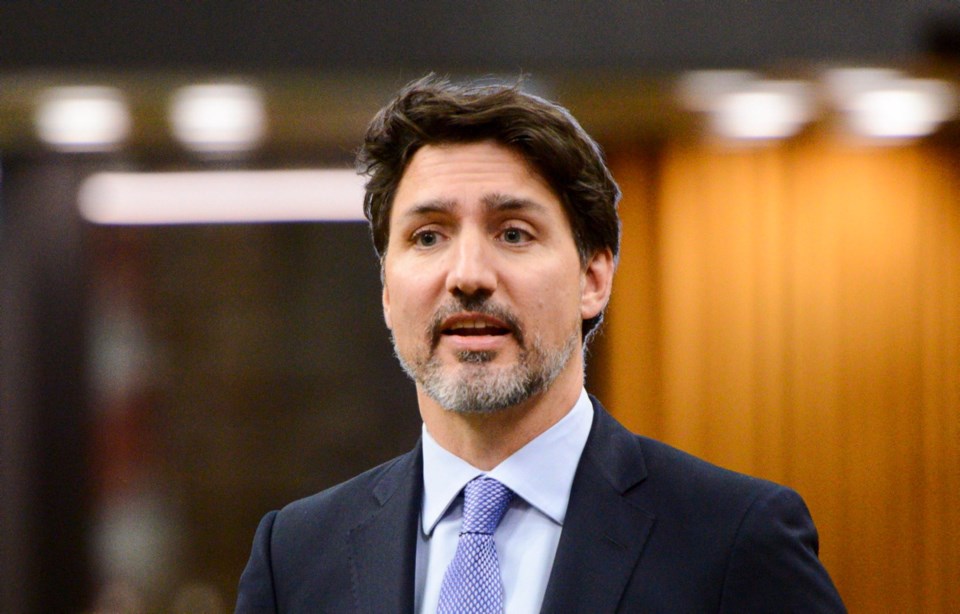One will never know whether the volatile crisis that has resulted from Indigenous tensions over a B.C. natural gas pipeline could have been averted had it not snowballed while the prime minister was out of country.
That Justin Trudeau came late to the scene — at a time when most of Canada’s railway system had already been ground to a halt by Indigenous blockades — is not in question.
That his belated entry in the debate fuelled doubts as to whether he was on top of the issue is also not a matter for debate.
Had they been uttered earlier on in the crisis, Trudeau’s conciliatory comments — laced as they were with boilerplate statements — in the House of Commons might have made the grade.
There would also have been more time to exhaust all possible negotiating avenues before pressure on the prime minister to demand that the barricades come down became irresistible.
It should not need to be said that well-functioning governments do not stop operating just because their leader happens to be abroad.
Something more than the poor timing of the prime minister’s travel plans has to account for a week lost arguing that the blockades were a provincial concern followed by a second one scrambling to play catch-up.
The appointment of a deputy prime minister to act as Trudeau’s second in command was the main feature of the post-election cabinet overhaul. Unless one assumes Chrystia Freeland’s brief boils down to holding the hands of the current cohort of Conservative premiers, would not one have expected her to step up to the plate until Trudeau’s return?
Hindsight is 20-20. No one, including top-level political strategists, can be expected to always get everything right. That is especially true when the same people are juggling major challenges on a multiplicity of fronts.
Even without the downing of a civilian airplane by Iran and the ongoing coronavirus episode, Trudeau’s government would have had its hands full with the ratification of the new NAFTA agreement, a court-ordered rewrite of the medically assisted death law and the drafting of a budget liable to secure the support of at least one opposition party.
Still, this is the same inner circle that was taken by surprise this month by the strength of the opposition within the government’s own caucus to the approval of the Teck Frontier oilsands mine.
It will be hard for Trudeau to succeed over a minority second term if he is supported by a myopic and tone-deaf palace guard.
As the past week has demonstrated, it is hard to find one’s way to the front of a parade once it has hit its stride.
For all intents and purposes, the prime minister spent the past few days looking as if he were dancing to the sound of the protesters’ drums.
Over that time, it has become less than clear that the Indigenous leaders Trudeau had sought to engage were really looking for a dialogue with his government. Many of their non-Indigenous supporters are not.
With the toll of the rail blockades mounting, the fact that the government’s insistence on a peaceful resolution — downgraded as of Friday’s prime ministerial news conference to a preference — enjoyed substantial support across the aisle in the House offered the Liberals increasingly cold comfort.
With every passing day that the situation has remained unresolved, the conciliatory approach favoured by a majority in Parliament has become more out of sync with public opinion.
That disconnect is compounded by the growing sense that the Wet’suwet’en hereditary chiefs who are leading the B.C. battle may be less interested in participating in talks that could find them on the losing end of the consensus of their own communities than in killing the pipeline.
So far, Trudeau and B.C. Premier John Horgan have declined to consider demands that Coastal GasLink either halt construction of the pipeline or undertake a major revision of its route.
Beyond considerations specific to this particular pipeline, Trudeau for one cannot but be aware that the saga surrounding this project is not taking place in isolation.
This month’s standoff has all the makings of a dress rehearsal for what could attend the completion of the expansion of the Trans Mountain pipeline. If peace of sorts does result from the prime minister’s demand that barricades come down, it may be short-lived.
Chantal Hébert is a columnist for the Toronto Star.



